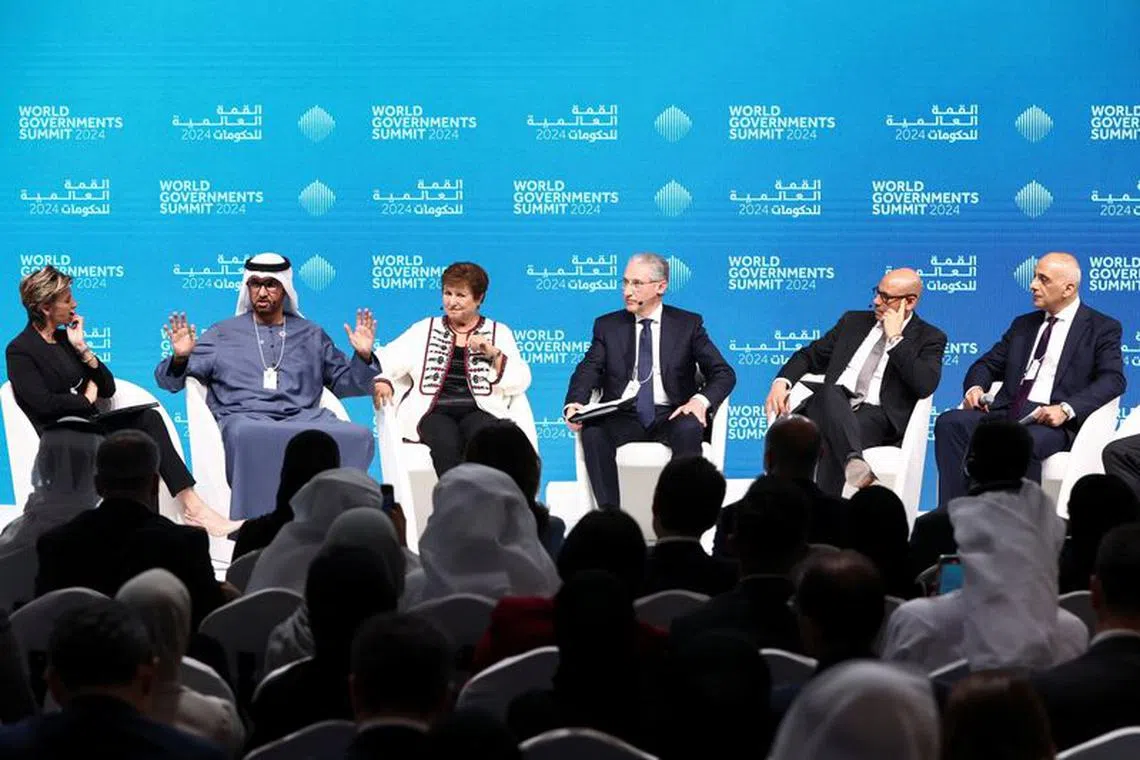COP hosts UAE, Azerbaijan, Brazil announce climate ‘troika’
Sign up now: Get ST's newsletters delivered to your inbox

The three-way 'troika' will focus on ensuring that more ambitious CO2-cutting pledges are made ahead of 2025‘s COP30 summit.
PHOTO: REUTERS
Follow topic:
BRUSSELS – The United Arab Emirates, host of 2023’s COP28 climate summit, and Azerbaijan and Brazil, the hosts of the next two UN climate summits, said on Feb 13 they would team up to push for more ambitious emissions-cutting goals.
Preparations for the 2024 and 2025 climate talks are taking place amid a political push-back on climate action in some countries – even as extreme weather becomes more frequent and temperature records are smashed nearly every month.
The UAE’s COP28 presidency said on Feb 13 the summit hosts would form a three-way “troika” to focus on ensuring that more ambitious CO2-cutting pledges are made ahead of a deadline at 2025‘s COP30 summit in Belem, Brazil.
“We cannot afford to lose momentum, we must do everything we can to keep 1.5 deg C within reach,” said Dr Sultan Al Jaber, the UAE’s president of 2023’s negotiations. The target of containing global temperatures to 1.5 deg C above pre-industrial levels was set out in the 2015 Paris Agreement.
But some climate diplomats are already looking ahead to Brazil’s summit in 2025 as the next major milestone for global climate diplomacy. Nearly 200 countries are required to submit updated national CO2-cutting pledges in time for COP30.
The next round of countries’ climate targets is seen as a crucial last chance to prevent global warming exceeding 1.5 deg C, a target fast slipping out of reach, as global greenhouse gas emissions continue to climb.
“The Troika helps ensure we have the collaboration and continuity required to keep the North Star of 1.5 deg C in sight – from Baku to Belem and beyond,” COP28 president Sultan Al Jaber said in a statement.
In a bumper year for elections, some politicians – from Republican front runner Donald Trump in the United States, to far-right parties seeking gains in the EU’s upcoming election – have pushed back on climate policies as they court voters.
Climate financing
At COP28, the world agreed to “transition away” from fossil fuels, but there was no progress on unblocking financial flows to developing countries, a major sticking point in negotiations.
This issue is set to be a central theme of COP29 in Baku, where a new target is expected to be set for the financial support provided by developed countries for climate change.
According to the Organisation for Economic Co-operation and Development, rich countries are about two years late in meeting their initial pledge of US$100 billion (S$134 billion) in annual climate funding by 2022.
The UN’s high-level expert group on climate finance said in 2022 that developing nations (excluding China) need to spend some US$2.4 trillion a year on clean energy and climate resilience by 2030 – four times current levels.
“We are committed to leveraging our strength as a bridge builder between the developed and developing world as host of COP29, to accelerate efforts to keep 1.5 in reach,” said COP29 president-designate Mukhtar Babayev.
“Key to that will be establishing a new climate finance goal that reflects the scale and urgency of the climate challenge.” REUTERS, AFP

